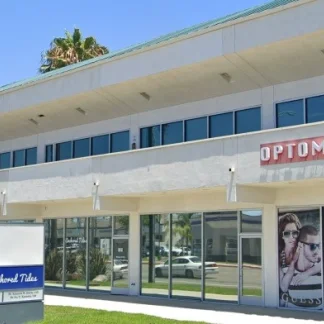Hotel California by the Sea
Hotel California by the Sea - 17th Street is dedicated to provide outpatient ser...
Anchored Tides Recovery, located in Huntington Beach, California, is an alcohol and drug rehab center for women. They provide a continuum of care on an outpatient basis to support clients with various levels of need. They treat chemical addiction and process addictions.
Anchored Tides Recovery focuses on addiction treatment, spirituality, nutrition, life skills, and nutrition. Their services include a partial hospitalization program, an intensive outpatient program, and outpatient treatment.
The partial hospitalization program meets seven days per week for several hours at a time. Individual therapy, group therapy, family therapy, and psychoeducational classes are provided.
The intensive outpatient program meets three days per week for several hours at a time. Individual therapy, group therapy, meditation, yoga, and movement services are provided.
The outpatient program is for individuals who need minimal support, such as a weekly therapy session. Clients work closely with their mental health therapist to identify the root cause of their addiction and strengthen their recovery skills.
Anchored Tides Recovery accepts most major medical insurance plans, including Magellan, United Healthcare, Blue Cross Blue Shield, Cigna, Aetna, and Anthem. Out of network benefits may vary, so clients are encouraged to contact their insurance carrier prior to starting treatment.
Contact us for more information: (866) 661-0974

Connect with Anchored Tides Recovery by calling their admissions team directly.
(866) 661-0974 Website Get DirectionsThe Joint Commission, formerly known as JCAHO, is a nonprofit organization that accredits rehab organizations and programs. Founded in 1951, the Joint Commision's mission is to improve the quality of patient care and demonstrating the quality of patient care.
Joint Commission Accreditation: Yes
LegitScript has reviewed Anchored Tides Recovery as part of their certification program, and has determined that it meets the LegitScript standards for legality, safety and transparency.
LegitScript verified in December 2020
The National Association of Addiction Treatment Providers (NAATP) is a professional association that represents organizations in the field of addiction services. Founded in 1978, NAATP's mission is to advance addiction services and ensure that high-quality addiction treatment is available and accessible.
NAATP Member: Yes
Research clearly demonstrates that recovery is far more successful and sustainable when loved ones like family members participate in rehab and substance abuse treatment. Genetic factors may be at play when it comes to drug and alcohol addiction, as well as mental health issues. Family dynamics often play a critical role in addiction triggers, and if properly educated, family members can be a strong source of support when it comes to rehabilitation.
Group therapy is any therapeutic work that happens in a group (not one-on-one). There are a number of different group therapy modalities, including support groups, experiential therapy, psycho-education, and more. Group therapy involves treatment as well as processing interaction between group members.
In individual therapy, a patient meets one-on-one with a trained psychologist or counselor. Therapy is a pivotal part of effective substance abuse treatment, as it often covers root causes of addiction, including challenges faced by the patient in their social, family, and work/school life.
Group therapy is any therapeutic work that happens in a group (not one-on-one). There are a number of different group therapy modalities, including support groups, experiential therapy, psycho-education, and more. Group therapy involves treatment as well as processing interaction between group members.
In individual therapy, a patient meets one-on-one with a trained psychologist or counselor. Therapy is a pivotal part of effective substance abuse treatment, as it often covers root causes of addiction, including challenges faced by the patient in their social, family, and work/school life.
In individual therapy, a patient meets one-on-one with a trained psychologist or counselor. Therapy is a pivotal part of effective substance abuse treatment, as it often covers root causes of addiction, including challenges faced by the patient in their social, family, and work/school life.
Hotel California by the Sea - 17th Street is dedicated to provide outpatient ser...
Yellowstone Recovery is a nonprofit drug and alcohol addiction recovery center i...
National Treatment Centers is a private rehab located in Newport Beach, Californ...
Gold Coast Counseling Center is a state accredited DUI school for those with sub...